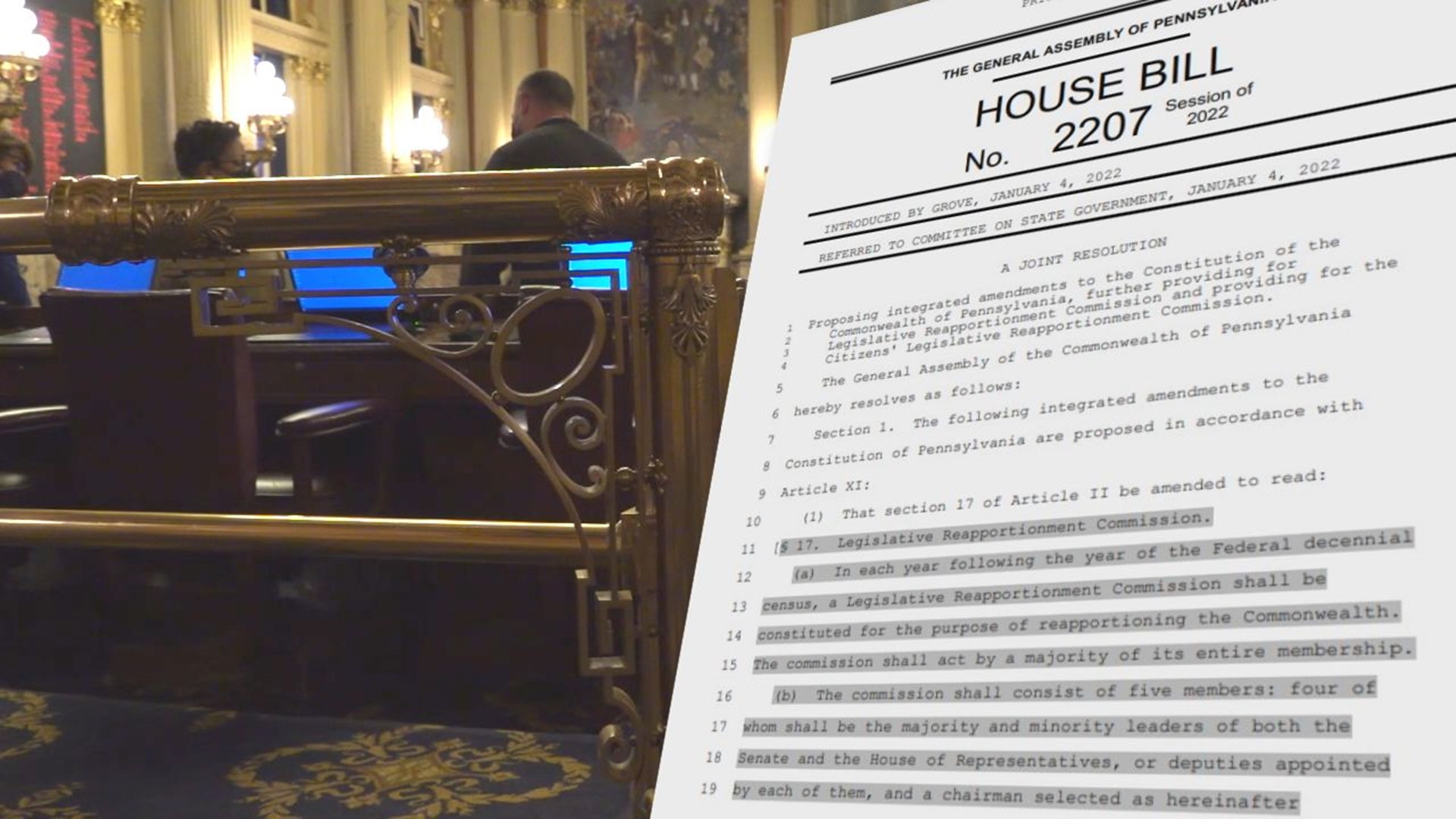HARRISBURG, Pa. — Pennsylvania state House Republicans are not happy with the process in which their current district maps are being redrawn and are calling on commonwealth citizens to help in the process of making future ones.
The latest proposal comes from State Representative Seth Grove, chairman of the House State Government Committee. It would create a panel consisting of 11 regular citizens selected by elected officials, tasked with drawing state House and Senate maps for the next 10 years. However, the panel's map would ultimately still need approval from the House of Representatives and Senate, respectively, which could reject the maps and draw their own without approval by the governor.
"Lets engage the citizens to create those maps so we have a better end product," said Grove (R-York).
House Bill 2207 is the latest constitutional amendment resolution proposed by Pennsylvania legislative Republicans as a way to get around the veto pen of democratic Governor Tom Wolf. In order to take effect, it would need to pass both the House and Senate in consecutive sessions with the same exact language before it lands on the ballot for voters. The earliest that could happen is the 2023 primary election.
It passed out of the House State Government Committee on a 15-10 party line vote. There was no public hearing for the bill. Grove said the public is welcome to share their comments with the committee.
"This is a step in reforming government and giving people a chance to say how they wish to be governed," said State Rep. Frank Ryan (R-Lebanon).
However, Democrats are calling the bill a power grab.
The proposal would disband the current five-member Legislative Reapportionment Commission (LRC), which consists of democratic and republican leaders in both the House and Senate. The commissions also includes a fifth person to act as a chairperson, typically appointed by the Supreme Court.
The current process has been in place since 1968. Mark Nordenberg, the former chancellor at the University of Pittsburgh, was appointed by the Supreme Court as LRC chair and has sided with both Democrats and Republicans in multiple 3-2 rulings. However, the most recent decision, which is a map proposal more favorable to democrats and puts 12 incumbent Republicans in re-election primaries against each other, has upset Republican leadership and rank-and-file members alike.
The new citizens commission would allow the four legislative leaders to each pick two citizens to serve on the panel. Two more would come as a result of a consensus from Pennsylvania's 67 counties. The final citizen on the commission would be a former Commonwealth Court judge. The current Commonwealth Court, where republicans hold a wide edge, would appoint that judge.
"These people are political appointees," said State Rep. Scott Conklin (D-Centre), minority chairman of the State Government Committee. 'When you go down the line it puts more and more power into one party."
Ultimately, the panel would propose a map with a two-thirds vote to the legislature for approval; the House map would go to the House, and the Senate map would go to the Senate. Neither map would need to be approved by the other chamber, unlike the current Congressional redistricting process.
If the legislative body does not approve of the maps, they can send it back to the commission. If the commission can't agree on a map, the legislature can approve one of its own through a resolution that does not need the governor's approval.
"We're taking power away from the governor," Conklin said. "We're taking power away from the judges. We're instead putting it into the legislative body. This absolute power will absolutely corrupt."

